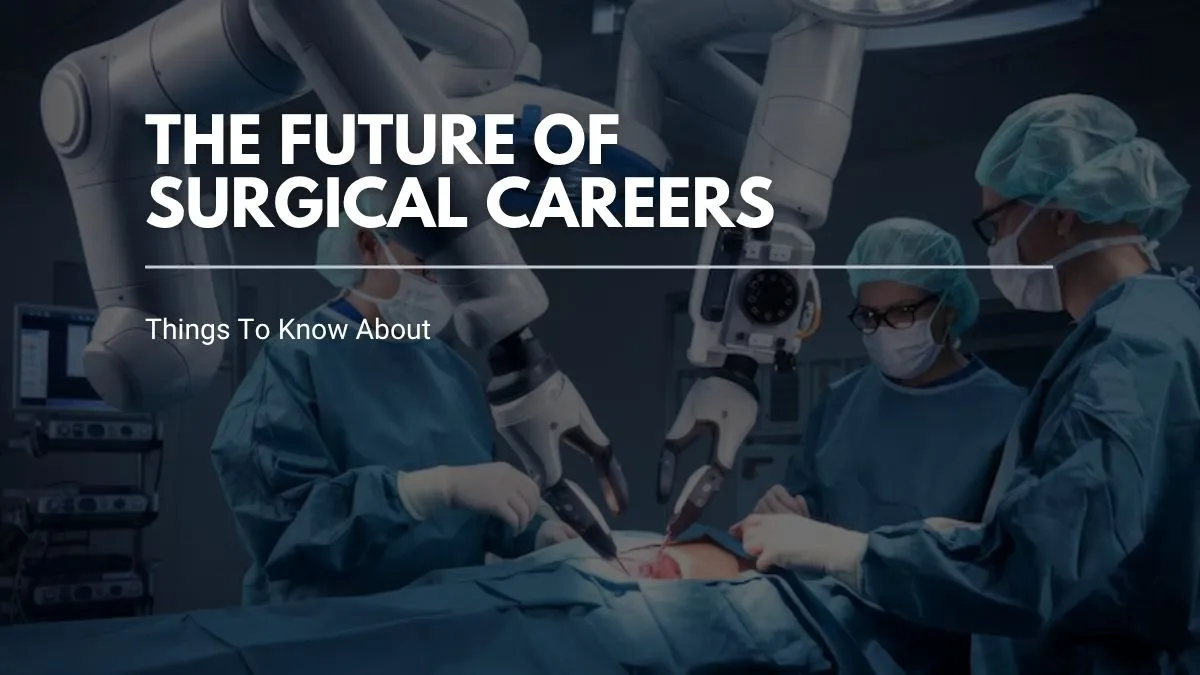GENERAL
The Future of Surgical Careers: Contract Work and Industry Demand

The healthcare sector has a constant demand for surgeons. These healthcare professionals handle various tasks, including preoperative diagnosis, operations, postoperative care, and leading surgical teams.
The surgical field continues to evolve rapidly, due to the changing patient demographics, technology advancements, and the increasing demand for interventions. Therefore, healthcare organizations need to do their best to attract and retain the best talent. This post will explore the current healthcare career landscape, including surgeons’ prospects.
Higher Demand for Surgery
The current labor statistics show that surgeon employment is likely to increase significantly in the next decade. One of the key factors that may contribute to the increased demand is the aging population, which often increases the need for healthcare services. The older population needs more surgical interventions, increasing contract surgeon jobs. Some common healthcare services the elderly need include orthopedic knee and hip replacements, cataract surgeries, and invasive cardiology.
The aging surgical workforces cannot be ignored since they create the need for new talent once they retire. The new surgeons who enter the field will have more opportunities as long as they excel in their areas of specialization. Surgical careers offer not just clinical opportunities but also pathways into education, research, and healthcare leadership. Experienced surgeons also get the chance to take up leadership roles.
This growing demand, paired with an evolving healthcare environment, makes surgical careers more attractive and competitive than ever. Those entering the field today will experience a unique blend of traditional practice and modern innovation.
High-Earning Potential
Surgeons are among the highest-paid healthcare professionals because of their higher level of responsibility and specialized skills. However, it is still important to note that several factors, such as the surgeon’s experience, specialty, and work location, may determine the salary.
Surgeons need to understand the different compensation models as they navigate their careers and decide whether to work in hospital employment or private practice. The compensation structures have progressed and include simple formats like straight salary or basic salary with bonuses. Such models offer a predictable income despite not having long-term monetary incentives.
Another compensation model is production-based compensation, which is determined by the surgeon’s productivity and measured via billings, relative value units, or collections. While the model rewards additional effort, it may create a competitive environment that may cause issues when it comes to collaborative patient care.
Capitation models are another option, and they involve paying physicians a set amount per patient. This model focuses on cost efficiency, but it relies on one’s negotiation skills and current market conditions, which may cause income fluctuations. The last model is value-based and has become popular. The compensation in this model is tied to the physician’s achievements and certain performance metrics. This approach improves patient outcomes and fosters a healthcare environment prioritizing quality service.
Revolutionary Innovations
As experts continue to make innovations in medical technology, surgeons get new protocols and treatment methods to explore. These innovations are designed to improve precision and provide a minimally invasive solution that helps patients recover fast. Other innovations and surgical technologies help mitigate malpractice risks for surgeons.
Another recent invention is robotics surgery that offers greater precision, smaller incisions, and quicker patient recovery. Surgeons also use artificial intelligence to manage preoperative plans, interpret patient imaging, provide assistance when operating on a patient, and get real-time analytics. All this helps reduce surgery time and enhances efficiency.
Although the future of surgical practices will likely be determined by technological innovations, regulatory landscapes, and patient behaviors, all of this will help improve service delivery. Surgeons do their best to balance patient care with professional autonomy since their career promises vast growth opportunities. That said, aspiring surgeons and new surgeons can steer their surgical careers in the right direction to create a lasting impact on patients and achieve their career goals.
-

 BIOGRAPHY9 months ago
BIOGRAPHY9 months agoBehind the Scenes with Sandra Orlow: An Exclusive Interview
-

 HOME1 year ago
HOME1 year agoDiscovering Insights: A Deep Dive into the //vital-mag.net blog
-

 HOME1 year ago
HOME1 year agoSifangds in Action: Real-Life Applications and Success Stories
-

 BIOGRAPHY1 year ago
BIOGRAPHY1 year agoThe Woman Behind the Comedian: Meet Andrew Santino Wife




























